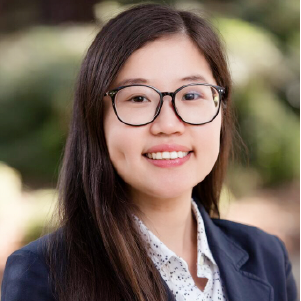Center for Social Innovation
“Sunny” Yiming Shao
My name is “Sunny” Yiming Shao. I am a researcher at the Center for Social Innovation and AAPI Data. I received my Master’s Degree in Public Policy from Pepperdine and my Bachelor’s Degree in International Communications from Nottingham. Currently, I am a Ph.D. candidate in political science at UCR.
I grew up in Ningbo, a harbor city in China, and a historical fisherman’s town. The smell of salty seawater and the sound of work songs accompanied my entire childhood. When I was studying at Pepperdine overseeing the beautiful Malibu beach, it always reminded me of crowded fish markets and early morning ship horns back home. That connection with nature and people guide my path to social science. As a first-generation immigrant, I was naturally drawn to the literature on immigrant activism and political engagement. I soon realized that the story of political engagement among new Chinese immigrants is yet to be told. This motivated my dissertation project and my work as a researcher for CSI & AAPI Data. One of my projects involves building a GIS tool for nonprofits and community organizations in the Inland Empire. That tool helped to highlight the geographic disparities in this region and has informed the stakeholders on funding decisions. I am passionate about projects like this and feel truly rewarded when applying my programming and analytical skills to tell an impactful story. I wish to continue that path after my graduation and be the professional that connects technology with people.
As a researcher at the Center for Social Innovation and AAPI Data, I provide various technical support and research work. In CSI, I’ve worked on “The State of” report series as well as the Census 2020 IE. For AAPI Data, I’ve led projects and reports in collaboration with many Asian American and Pacific Islander organizations such as APALA, APIAVote, and Washington CAPAA. My role includes programming, survey design, data analysis & visualization, mapping using tools such as R, Python, STATA, ArcGIS, and Adobe suites.
Working with our community partners has been a great honor. I was fortunate enough to sit in a few training sessions with them, where they shared with me their institutional and financial challenges they face. They took upon themselves the responsibility to navigate the uncharted water and lead the way for others. More importantly, they are deeply connected in those communities and are mindful of their specific needs such as language assistance and cultural practices. Our report may highlight some of their work, but they are the living stories of the region, enduring and resilient.
